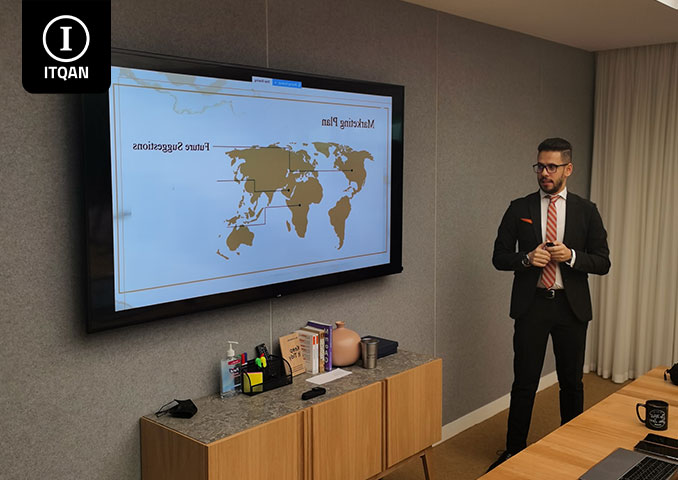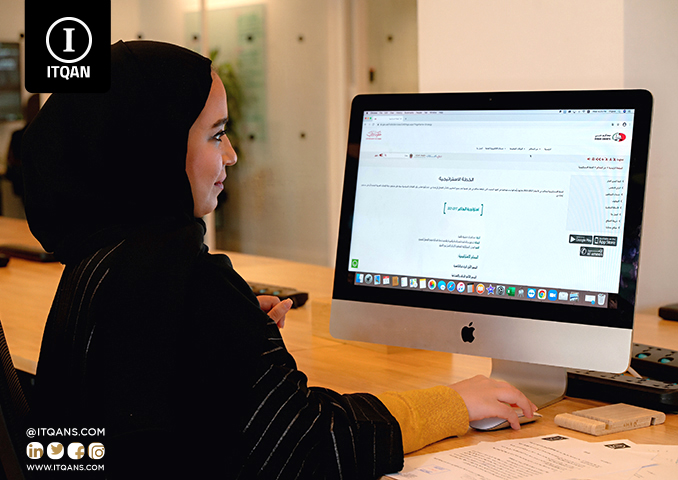Enabling minors to establish companies in the Emirates. To talk about enabling minors to establish companies in the Emirates, we must highlight the efforts aimed at supporting ambitious youth and enabling them to participate in the country’s economy effectively. The UAE is an ideal environment for entrepreneurship and investment, as the government provides great support to young people who want to achieve their business dreams.
In the UAE, the initiative to enable minors to establish companies represents an important step towards enhancing the creative and economic capabilities of young people. This initiative aims to stimulate the spirit of entrepreneurship among young people and provide them with opportunities to build their own projects in a legal and thoughtful manner.
Itqan Company plays a vital role in this context, as it provides the necessary support and advice to minors who wish to establish their companies in the Emirates. Itqan Company’s experience and specialization contribute to facilitating the establishment process and guiding young people through all the required legal and administrative steps.
Establishing a company at an early age enhances youth skills in management and innovation, and contributes to the sustainable growth of the local economy. In addition, this type of youth investment enhances diversity and innovation in the local market, and reflects the UAE’s commitment to enhancing the role of youth as a backbone in achieving the country’s vision for the future.
This introduction highlights the importance of enabling minors to establish companies in the Emirates, and the role of specialized companies such as Itqan Company in supporting and facilitating this process, which enhances the development of the local economy and deepens the entrepreneurial scene in the country.
To talk about enabling minors to establish companies in the Emirates , we must take a deep look at the legal and economic environment that supports this important step. In the UAE, the government is working to promote youth entrepreneurship and enable young people to take advantage of available economic opportunities, including establishing companies. These initiatives enjoy strong support from stakeholders and institutions that facilitate the establishment process and provide the necessary support to minors looking to start their own business ventures. This introduction comes to shed light on the available legal frameworks and the various opportunities that this step can open to young people, which enhances their role in the sustainable economic development of the country and enhances their professional and personal future.

Enabling minors to establish companies in the Emirates
جدول المحتوى
ToggleTypes of companies that can be established in the UAE
To talk about the types of companies that can be established in the Emirates, we find that the options are diverse and allow investors to choose the structure that best suits their commercial and legal goals. The UAE is an ideal environment for investment, as companies can benefit from advanced legislation and easy procedures for establishing and operating a business. Types of companies that can be established in the Emirates In the Emirates, several types of companies can be established, including:
- Local Company (Limited Liability Company): It is the most common form among companies in the Emirates, where partners have equal rights and are responsible for debts and losses in their proportion of the capital.
- Sole Proprietorship Company: It is managed by one person who is responsible for all debts and losses based on the capital with which he established the company.
- Company in the free zone: Free zones are considered an ideal environment for international companies, as they enjoy privileges such as not imposing taxes on profits and the freedom of complete foreign ownership.
- Company in a private free zone: These free zones give companies the option to establish and operate their businesses independently in accordance with the laws of the region.
These types differ in terms of their establishment, applicable laws, and the privileges available to them. These diversifications allow investors to make the best choice according to the type of business activity and the goals they seek to achieve in the dynamic and growing UAE market.
Basic steps to establish a company in the UAE
To proceed with establishing a company in the UAE , you need to follow specific steps that include certain legal and administrative procedures to ensure that the company is established and operated legally and effectively. Here is an introduction that explains the basic steps for establishing a company in the UAE: Basic steps for establishing a company in the UAE
In the UAE, establishing companies is an advanced process that requires good planning and compliance with local laws and regulations. Here are basic steps for establishing a company in the UAE :
- Study the market and prepare a business plan: The process of establishing the company must begin with a comprehensive study of the local market, and an assessment of the demand for the products or services that you plan to provide. Next, a business plan must be prepared that defines the objectives, strategies and expected risks.
- Choosing a company type: You must choose the appropriate company type, such as a limited liability company, sole proprietorship, or free zone company, based on the type of business activity and operational needs.
- Choosing and registering a company name: You must choose a unique name for the company and ensure that it is not similar to the names of other registered companies. The company name is registered with the Department of Trade and Industry or the body concerned with company registration.
- Submitting an application for a license: Establishing a company requires submitting an official application to obtain an establishment license from the competent authority, such as the Department of Economic Development or the Free Zones Authority, depending on the company’s chosen location.
- Signing the Partnership Agreement: If there is a partnership in the company, a formal partnership agreement must be signed that specifies the rights and duties of each partner, in addition to their shares in the capital and profits.
- Registering the company and obtaining commercial licenses: After completing the previous procedures, the company must be registered in the appropriate commercial registry and obtain the necessary commercial licenses to start commercial activity.
- Compliance with local taxes and regulations: The new company must comply with all local taxes and financial regulations, and file financial and tax reports regularly.
- Opening a bank account: Establishing a company requires opening a local bank account for business transactions, where money can be transferred and payments can be received from customers.

Papers and documents required to establish a company in the UAE
Papers and documents required to establish a company in the UAE
To establish a company in the UAE , you need to prepare a number of papers and documents that vary slightly depending on the type of company and the location you choose to establish it. Here is an introduction that explains the basic papers and documents required to establish a company in the Emirates: Papers and documents required to establish a company in the Emirates In the process of establishing a company in the Emirates, the following papers and documents are generally required:
- A copy of the passport or personal ID: A copy of the passport or ID card must be submitted for each founder and director of the company.
- A recent personal photo: A recent personal photo is required for each founder and director of the company.
- Experience certificate (if any): In some cases, the competent authorities may require experience certificates for founders or managers, especially in specific professional sectors.
- Business Plan: The business plan is an important document that explains the company’s goals, growth strategies, and financial expectations for the coming years.
- Partnership Agreement (if applicable): If the company is established as a partnership, the partnership agreement defines the rights and obligations of each partner and the distribution of profits.
- Residence Certificate (for residents): If one of the founders or directors is a resident of the UAE, a residence certificate issued by the local authorities may be required.
- Commercial activity license: A license for commercial activity must be obtained from the competent authority, such as the Department of Economic Development or the Free Zones Authority.
In short, the process of establishing a company in the UAE requires providing a set of basic papers and documents that prove the identity of the founders and explain their plans for the chosen business activity. By complying with these measures, new companies can confidently and effectively start their operations in a favorable and supported investment environment in the UAE.
Our company’s role in establishing companies in the Emirates
In conclusion, we can emphasize the importance of enabling minors to establish companies in the Emirates as a promising investment step in their future, and in strengthening the national economy in general. This measure is part of government efforts to promote entrepreneurship and support young people in achieving their business and professional dreams. This step enhances the leadership and creativity capabilities of young people, and encourages them to develop their skills and experiences in a lively and developed business environment such as the UAE.
In addition, enabling minors to establish companies can contribute to strengthening the entrepreneurial culture in society, as young people learn financial and administrative responsibility through real work experience. This can also lead to generating new job opportunities and enhancing innovation and investment in various sectors, which enhances comprehensive economic growth.
It is also important to emphasize that this step comes with the support of local companies and institutions such as Itqan Company, which plays a vital role in guiding and supporting young people during the stages of establishing their companies, and providing the necessary consultations and services to ensure the success of their businesses.
In this way, enabling minors to establish companies in the Emirates can be a catalyst for economic and social development, and an effective contributor to building a promising future for both youth and the country.
Frequently asked questions about establishing companies in the UAE
What types of companies can be established in the UAE?
Several types of companies can be established in the UAE, including a local company, a sole proprietorship, a free zone company, and a private free zone company.
What are the basic steps to establish a company in the UAE?
The steps include choosing the company type, choosing and registering the company name, submitting an application for a license, signing the partnership agreement (if there is a partnership), and registering in the appropriate commercial registry.
What are the differences between a mainland company and a free zone company?
A company in a free zone enjoys privileges such as no taxes on profits, full foreign ownership, and limited local investments.
What are the papers and documents required to establish a company in the UAE?
Paperwork includes a valid certificate, passport or personal ID, a personal photo, and a clear business plan.
What are the expected costs of establishing and operating a company in the UAE?
Costs depend on the type of company, location, and activities, with costs for company licenses, registration fees, rents, and salaries.
What are the legal and administrative procedures required to establish a company with foreign shareholding?
Foreign-shared companies must comply with local laws and regulations, and obtain the necessary licenses from the relevant government agencies.
What are the tax and customs privileges for companies registered in free zones?
Companies in free zones enjoy many privileges such as exemption from taxes on profits, customs, and favorable employment policies.

















